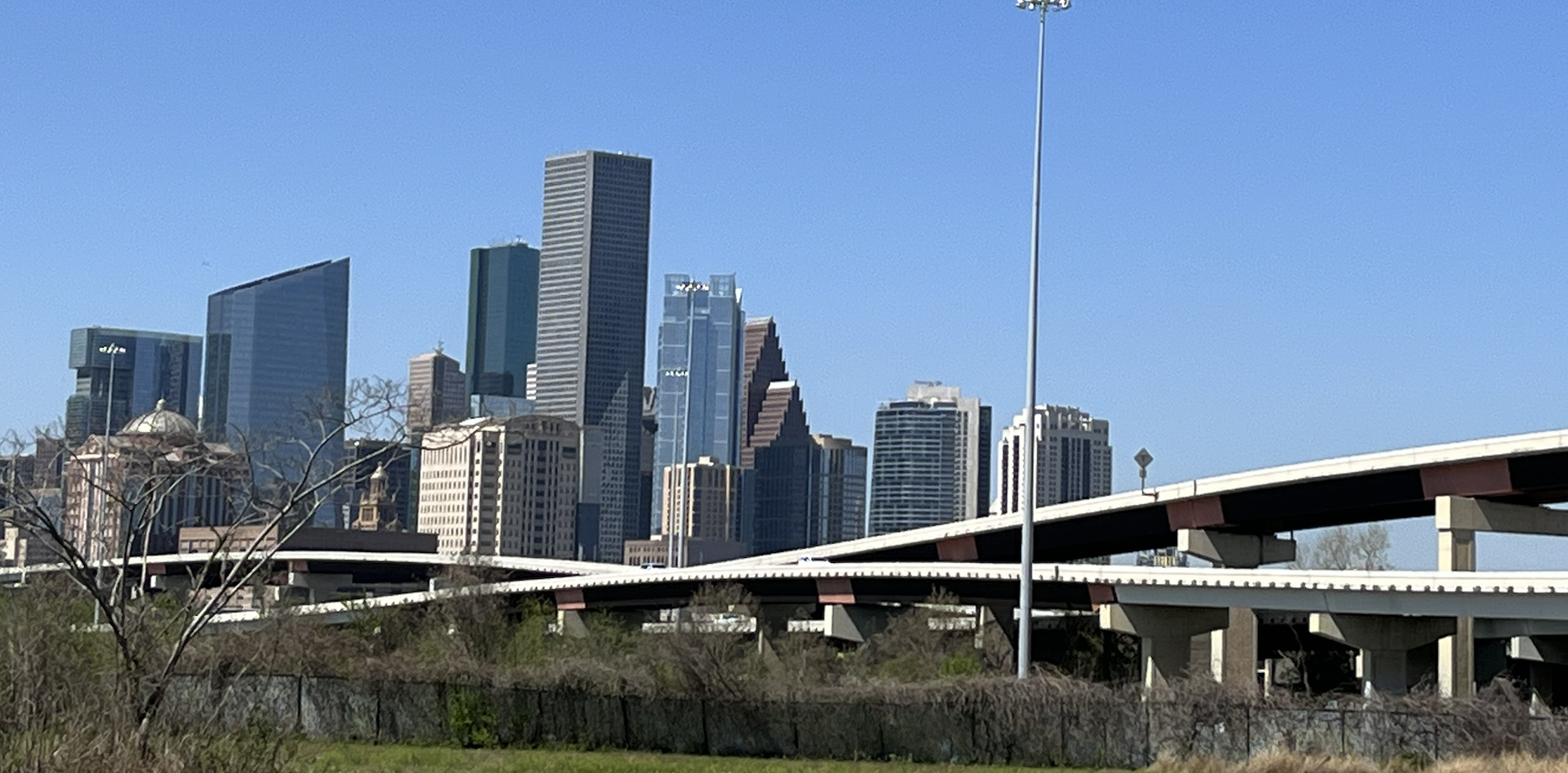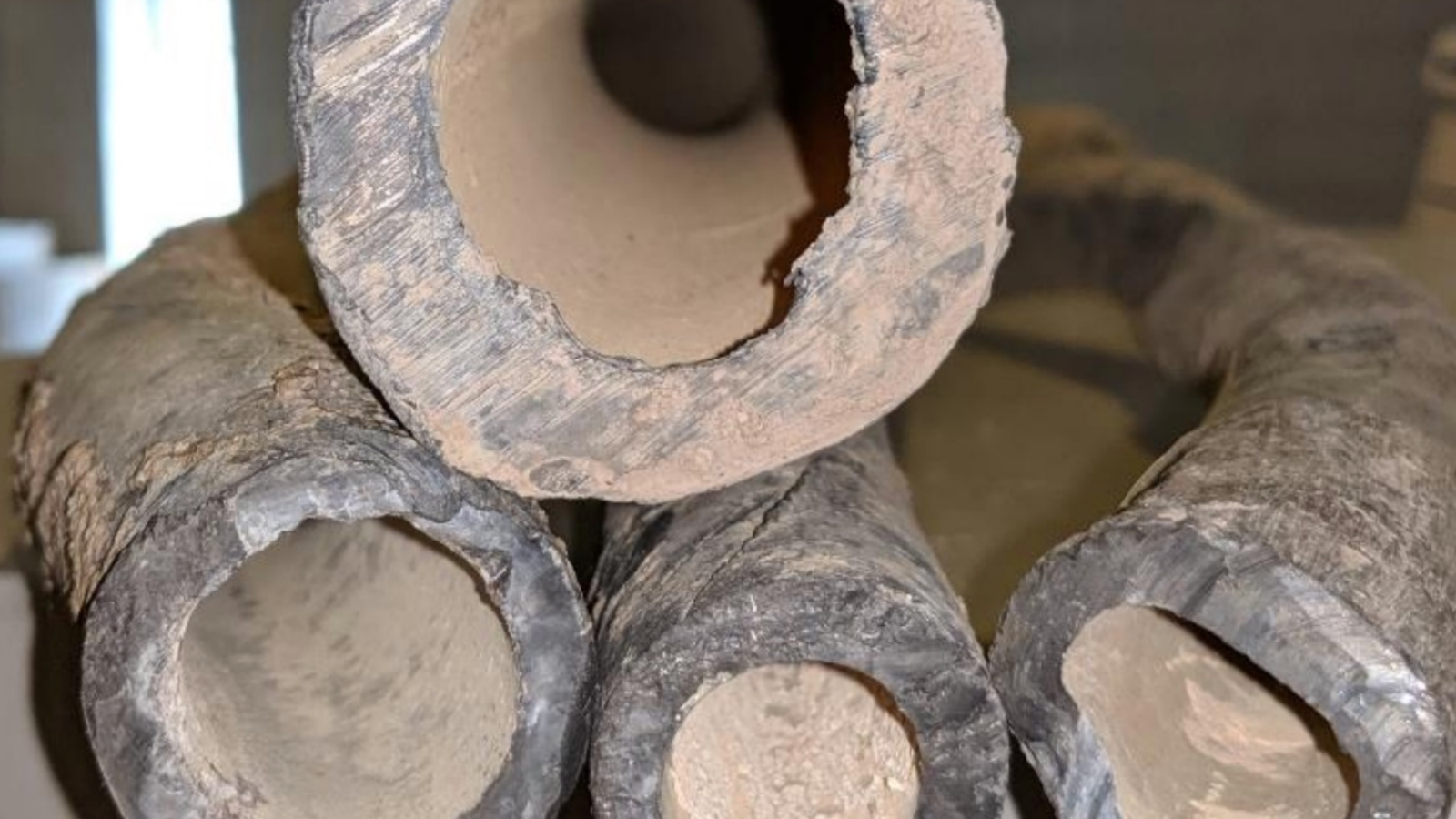
Testimony on Potential Lease of the PA Turnpike
Many of the concerns raised about leasing Pennsylvania highways in general, and the Turnpike in particular, revolve around costs in a monetary sense, especially raising tolls. But there are many less visible costs whose impact will be far greater than toll increases under the proposed contract. These costs need to be brought into the discussion.
Members of the Pennsylvania House Transportation Committee
Many of the concerns raised about leasing Pennsylvania highways in general, and the Turnpike in particular, revolve around costs in a monetary sense, especially raising tolls. But there are many less visible costs whose impact will be far greater than toll increases under the proposed contract. These costs need to be brought into the discussion.
These hidden costs take the form of lost accountability, hidden subsidies, and reduced public control.
Accountability
So far, the discussion about privatizing the Pennsylvania Turnpike has given little consideration to the issue of accountability, here, meaning ensuring that the public gets what it pays for and that the private operators meet their obligations under the contract.
Many people today reflexively equate private provision with improved service – and therefore assume that privatization will automatically lead to better managed roadways at lower cost. However, making something private does not magically improve its performance. Market discipline can spur private companies to perform better when there is ongoing competition. This is what creates market accountability.
Theoretically, a private road operator could be made accountable to market performance by competing against other roadways or competing for short-term recurring contracts. The reality however is that both forms of accountability would be absent in this deal. There will not be a series of parallel turnpikes competing for drivers, a fact which the mountainous topography of most of Pennsylvania virtually assures will remain the case. Similarly, because the deal creates a 75-year monopoly, the operators will not be disciplined by competition for future contracts. The people will be long dead before this contract could come up for renewal. Studies of local level privatization show that privatization experiments often do not work out, and that local governments contract as many services back in to the public sector as they contract out. This deal, however, would prevent the Commonwealth from doing so for four generations.
Proponents of the Turnpike deal often tout the contract as the product of long, careful crafting. But its 686 pages are, instead, more accurately viewed as a testament to the parties’ understanding that there is – and for decades will be – no market accountability. In the absence of other forms of accountability, the long, complex document provides the only basis of public oversight that can exist. Unfortunately, study after study has shown that, although the complex job of contractor monitoring and oversight is essential to ensure that promises are kept, the evidence shows that oversight consistently falls short. One reason may be optimism that private provision can be relied on in and of itself to provide superior outcomes. A second possibility is that the same governmental entities that seek to unload certain public activities are generally not oriented toward building up the substantial and expensive new capacities to accomplish this oversight. In any case, there is no reason to assume that things will be different in this case. If the contract is approved, the Legislature must take seriously its responsibility to appropriate sufficient funding to ensure adequate oversight and to exercise continuing oversight over that oversight.
Even with perfect oversight and enforcement, the contract itself is still based upon our present guesses about the future. We can see how far off predictions made 75 years ago about our current lives and technology were just by watching films or reading books from 1933. The rapid changes in the last months caused by soaring gasoline prices is evidence of how quickly profound changes can occur. This week the news is full of reports of a huge swing to mass transit and an abandonment of suburbs. As the years go by, we may see massive population shifts or new technologies such as autopilot cars and embedded road sensors. With no real market accountability and a contract that can not predict the needs of four generations of Pennsylvanians, it is impossible to ascertain what will be a fair price.
Not only will transfer of the Turnpike from public to private hands fail to create market accountability; it will also eliminate important forms of public-sector accountability that exist now. Pennsylvanians will lose the legal rights to information that derive from state and federal freedom of information acts, open meeting laws, sunshine laws, constitutional protections, civil service regulations, and citizen access through government committees and oversight boards. Some people may denigrate these rights and protocols as red tape; but they are important mechanisms that can be used to keep Turnpike operations accountable to public goals, values, and due process. They provide transparency and give people legal standing to call government to account. And all these forms of public accountability are backed by the ultimate power of democratic accountability: the ability to vote out administrations that mismanage the Turnpike.
The oft-discussed issue of tolling well illustrates the difference in accountability. If the Turnpike remains publicly controlled infrastructure, the public can access information and participate in decisions about toll rates. If the Turnpike is leased, for the next 75 years, information about the Turnpike goes into the black box of proprietary business secrets. The public’s only recourse is circuitous local roads and grumbling powerlessly about the toll rates or other problems that arise.
Hidden Public Subsidies
Although the Turnpike is much maligned as an aging highway in need of expensive improvements, it is still a valuable public asset. Consider the tax dollars invested in the Turnpike and the tremendous cost that would be required to construct an equivalent new road. These costs would include finding an appropriate route, acquiring the land, deciding on the actual roadbed, designing the roadway and interchanges, excavating and otherwise building the underlying roadbed, and then building the actual highway, bridges, interchanges, and accompanying drainage. The Pennsylvania Turnpike is an engineering feat that required blasting through mountains and precise construction with huge quantities of concrete and steel. Transferring the Turnpike to private hands demands that the Legislature ensure that this public investment is protected.
Despite the value of the Turnpike and of highways in general, private companies were not interested in highway privatization until huge tax subsidies became available to them. In other words, private companies do not see running unsubsidized toll roads as a way to make money. In a cost-benefit analysis of leasing the Turnpike, those subsidies to induce private companies to lease toll roads must be included as a cost to the public. The Turnpike deal is no exception, as Governor Rendell’s announcement made clear. Among the subsidies, without which there would be no highway privatization, are provisions of the federal tax code that allow highly accelerated depreciation and that allow private contractors to borrow low-cost money if they create a “nonprofit” affiliate and use it issue tax-free bonds.
These subsidies are a free lunch for private road operators but not for the public. For instance, tax-free bonds mean that companies and the investments from other investors into their operations produce lower tax revenues to spend on public needs and infrastructure. Moreover, permitting the creation of sham nonprofits solely to subsidize individual private companies creates a dangerous precedent. The lines between for-profit and not-for-profit entities is already a fragile one, but one in which it is important to maintain clear boundaries. These distinctions were created specifically to protect charity activities and other vital social functions that are not ordinarily profitable. Turning those distinctions into mere tax loopholes will have serious costs both for protecting important social functions and because other public revenues will be lost.
Another hidden subsidy allows private operators to qualify for a highly accelerated tax depreciation that allows it to write off costs far more quickly than they are actually incurred. This may mean that the cost of the initial up-front payment can be recovered in 15 years, for instance, 1/5 of the contract term. This is like giving the private operator a no-interest loan on the value of these tax write offs for 50 years.
The chief reason these road deals are so long is to take advantage of this hidden subsidy from taxpayers. Accelerated depreciation is available only if the private company agrees to a very long contract, one that extends past the expected useful life of the asset. What incentives will such a situation create? PTP may have an incentive to walk away after it has reaped this tax benefit, but before major new investments would be required. Certainly the investor has an incentive to limit its investment in the infrastructure as the termination date approaches. It might instead be more profitable to use the threat of disinvestment or abandonment as a way to induce the Commonwealth to make other concessions.
Loss of Public Control
The language of the proposed Turnpike contract shows that the parties were sufficiently concerned about unpredictable future events that they tried to include provisions to provide greater certainty for investor and Commonwealth alike. However, these provisions do more than just guarantee that sufficient revenues are generated for PTP. They would also affect the exercise of public power by Pennsylvania’s government at all levels. In the contract these provisions fall under three definitional categories: compensation events, delay events, and adverse actions. When any of these occurs it can require the Commonwealth to compensate PTP for lost revenues. Since the Commonwealth is considering privatizing the Turnpike in order to generate public revenue, it should want to avoid anything that could create a compensation event, a delay event, or an adverse action.
The contract includes a number of provisions that create “compensation events”, which arise when Turnpike traffic, and thus toll collections, are negatively affected. The contract says:
“Compensation Event” means (i) any applicable entry on the Turnpike by the Commonwealth pursuant to Section 3.7(a)(v) through Section 3.7(a)(ix); provided that the Concessionaire’s use of the Turnpike as a highway is materially impaired resulting in Losses or reduced Turnpike Revenues, (ii) the Concessionaire’s compliance with or the implementation of a Required Modification pursuant to Section 5.2, (iii) the Concessionaire’s compliance with or the implementation of any modified or changed Operating Standard (as contemplated by Section 6.3(b)), (iv) the termination of an agreement with a Vendor as contemplated in Section 7.2(d), (v) the occurrence of an Adverse Action as contemplated in Article 14, (vi) the circumstances described in each of Section 2.5(i), Section 4.1(a), Section 4.2, Section 5.2 and Section 15.2(d), (vii) any breach of the covenant set forth in Section 3.10(b) or (viii) the occurrence of a Commonwealth Default as contemplated in Article 16.
“Concession Compensation” means, with respect to a Compensation Event, compensation payable by the Commonwealth to the Concessionaire in order to restore the Concessionaire to the same after-Tax economic position that the Concessionaire would have been in if such Compensation Event had not occurred and calculated in accordance with Section 15.1(b).
There are many compensation events listed in the contract that mean the Commonwealth must pay money to PTP. However, even some situations that appear to be excluded from the definition of compensation event may still end up with the Commonwealth owing PTP more money. For example, the contract allows the Commonwealth to enter the Turnpike to ensure the contract is being complied with, to make necessary repairs in the case PTP defaults, or to deal with emergencies. Nonetheless, each of those acts may mean money is owed to PTP. The reason is that the contract says that, in the first two situations, the Commonwealth may enter only at “reasonable times and upon reasonable prior notice”. In the case of emergencies, the police, fire, emergency services, armed forces, or other security or emergency personnel may enter the Turnpike only if they “reasonably believe” there is a situation that has caused or has the “imminent potential to cause” injury or damage to people or property and if PTP is given notice that is “practicable under the circumstances”. Lawyers know that subjective terms such as “reasonable” provide the basis for disputes and litigation.
At present, Pennsylvania’s emergency responders react as best they can in a crisis, but the contract would force them to hesitate: Is it clear that this situation is a serious threat worth impeding the flow of traffic and tolls? Could it be proved that it was reasonable to believe there was an imminent threat?
Or consider the impact of a “Delay Event” – a long complicated collection of potential circumstances ranging from “force majeure” through finding archeological remains through changes in the law to miscellaneous failures to obtain permits and much more, a range of situations that could prevent or impede PTP from meeting its obligations or taking other actions, laid out at length in the contract. While PTP can do as most private business do and insure against these events, the contract allows it additional remedies to guarantee PTP’s revenues. If the Delay Event affects toll collections or “the fair market value” of PTP’s interest, the Commonwealth may find that it will owe PTP money or must give PTP the right to increase tolls or extend the contract as alternative forms of payment. PTP can also seek other Delay Event remedies. In other words, the contract requires the Commonwealth to be a guarantor of PTP’s profits in ways not generally available to private companies. Indeed, in the private sector, it is the possibility of failure that is supposed to spur innovation and performance. PTP has touted the deal as shifting risk from the public sector to the private companies. However, many provisions of this contract actually place additional financial risks on future taxpayers in order to ensure that PTP cannot fail to achieve the revenues it has projected to its investors.
And, finally, consider “Adverse Actions” and the right to “Adverse Action Compensation”. These provisions are directed at the legislature. PTP can demand Adverse Action Compensation, or that the contract be terminated, if the legislature enacts laws that can be reasonably expected to principally affect the Turnpike or private toll road operators. Just as compensation event payments mean emergency crews must stop and think before acting, so, too, the legislature must consider whether a new law might affect the Turnpike or private toll road operators and, if so, whether that impact would mean it might have to pay Adverse Action Compensation. Consider, as well, the cost of resolving whether the Legislature “reasonably expected” that a law would “principally affect the Turnpike or private toll road operators.”
The Commonwealth’s liability for compensation events, delay events, and adverse action events would fundamentally alter the way Pennsylvania government functions regarding anything remotely related to the Turnpike. Even some things with only indirect impact on turnpike revenues could mean that payments flow from state coffers to PTP. The lease deal would surely create the need to retain a stable of lawyers to manage against these claims. If PTP is to fulfill its legal obligation to maximize profits for investors, it will likely employ its own staff of lawyers to scrutinize public activities that might be the basis for added compensation. For each of these payment situations, the contract is full of subjective words such as “reasonably believed,” “imminent,” and “material” that provide ample opportunity for disagreement. No doubt the state often would have to pay compensation or at least spend time and money deciding whether to pay or to litigate differences of opinion.
Such situations could arise frequently, and the private operator has the right to claim that a number of actions, even saving lives or new policies and laws, cause them to lose revenue. Decisions now based on choosing the correct course of action would be muddied by the possibility of litigation and compensation. This loss of autonomy and control would persist for the 75 years the Commonwealth would be locked into this contract, a contract that would sever control of and cooperation from one part of government.
This contractual complexity will necessitate additional costs for oversight to ensure accountability, to ensure that all parts of the government are informed about the new procedures, to vet actions that might lead to disputes and the payment of compensation, and to create the infrastructure to deal with disputes that arise. Even if the Commonwealth finds that these and other problems arise, it may decide that the cost of getting out of the relationship is too great.
Conclusion
Although to some, privatizing the Turnpike may seem like free money, it is clear that this “free money” comes with great costs. The Legislature should ask whether it can find alternative ways to make improvements that would not entail these additional costs, risks, and impact on governance entailed by this contract. That inquiry should include consideration of the impediments that stand in the way of achieving improvements through more incremental and conservative steps that build on the existing governmental structures. It should ask whether other alternatives are superior and less expensive than being locked into a very long-term contract. Among those alternatives are issuing tax-free bonds to raise revenues and hiring private entities with specialized knowledge and expertise only when and as needed for specific tasks. The legislature should also weigh the loss of public control over an important public asset and the wisdom of delegating hard decisions, such as toll hikes, and using an expensive and complex process to ensure there are sufficient public revenues available to meet public needs.
Topics
Find Out More


Touring Houston’s Highways

Money for nothing? How to make better use of our transportation dollars.

